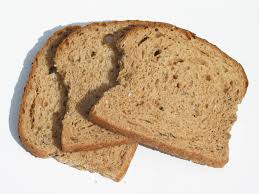stale
英 [steɪl]
美 [steɪl]
- adj. 陈腐的;不新鲜的
- vi. 变陈旧;撒尿;变得不新鲜
- vt. 使变旧;变得不新鲜
- n. 尿
- n. (Stale)人名;(塞)斯塔莱
使用频率:

记忆方法
1. Something that is stale has etymologically been allowed to 'stand' – so that it is no longer fresh.
2. Stale originally denoted wine, beer, etc that had 'stood' long enough for the sediment to clear.
2. Stale originally denoted wine, beer, etc that had 'stood' long enough for the sediment to clear.
中文词源
stale 陈腐的,污浊的
可能来自古法语 estal,存放的,固定位置的,来自 Proto-Germanic*stallaz,放置,固定位置, 来自 PIE*stel,放置,站立,词源同 stall,stand.引申比喻义久放的,陈腐的,污浊的。
英语词源
- stale
-
stale: [13] Something that is stale has etymologically been allowed to ‘stand’ – so that it is no longer fresh. The word comes from Old French estale ‘stationary’, a derivative of estaler ‘halt’ (from which English gets the verb stall). And this in turn goes back ultimately to the prehistoric Germanic base *sta- ‘stand’. Stale originally denoted wine, beer, etc that had ‘stood’ long enough for the sediment to clear (‘If mead is well sod [boiled] and stale it is liking to the taste’, John de Trevisa, De proprietatibus rerum 1398), and it was not until the early 16th century that derogatory connotations of lack of freshness began to creep in.
=> stall, stand - stale (adj.)
- early 13c., "freed from dregs or lees" (of ale, wine, etc.), probably literally "having stood long enough to clear," ultimately from PIE root *sta- "to stand" (see stet); probably via Old French estal "placed, fixed position," from Frankish *stal- "position" (see stall (n.1)). Cognate with Middle Dutch stel "stale" (of beer and old urine). Originally a desirable quality (in beer and wine); the meaning "not fresh" is first recorded late 15c. Figurative sense (of immaterial things) "old and trite, hackneyed" is recorded from 1560s. As a noun, "that which has become tasteless by exposure," hence "a prostitute" (in Shakespeare, etc.). Related: Staleness.
- stale (v.)
- mid-15c., from stale (adj.). Related: Staled; staling.
权威例句
- 1. He was aware of the stink of stale beer on his breath.
- 他知道自己嘴里有股变味啤酒的馊味。
- 2. The Government, he said, were sticking to stale ideas.
- 他说政府仍在抱残守缺。
- 3. I believe in progression, in taking risks, in never getting stale.
- 我崇尚进取、冒险和永不倦怠。
- 4. There was a powerful smell of stale beer.
- 有一种呛人的过期啤酒味。
- 5. Your breath reeks of stale cigar smoke.
- 你满嘴都是难闻的雪茄味。